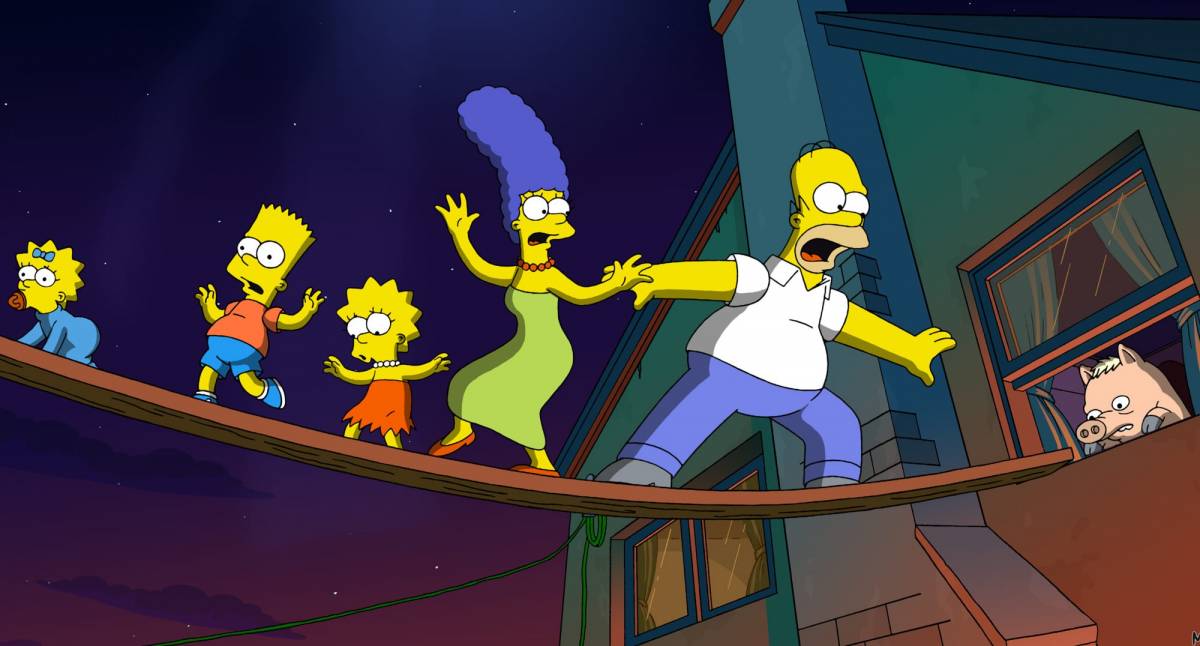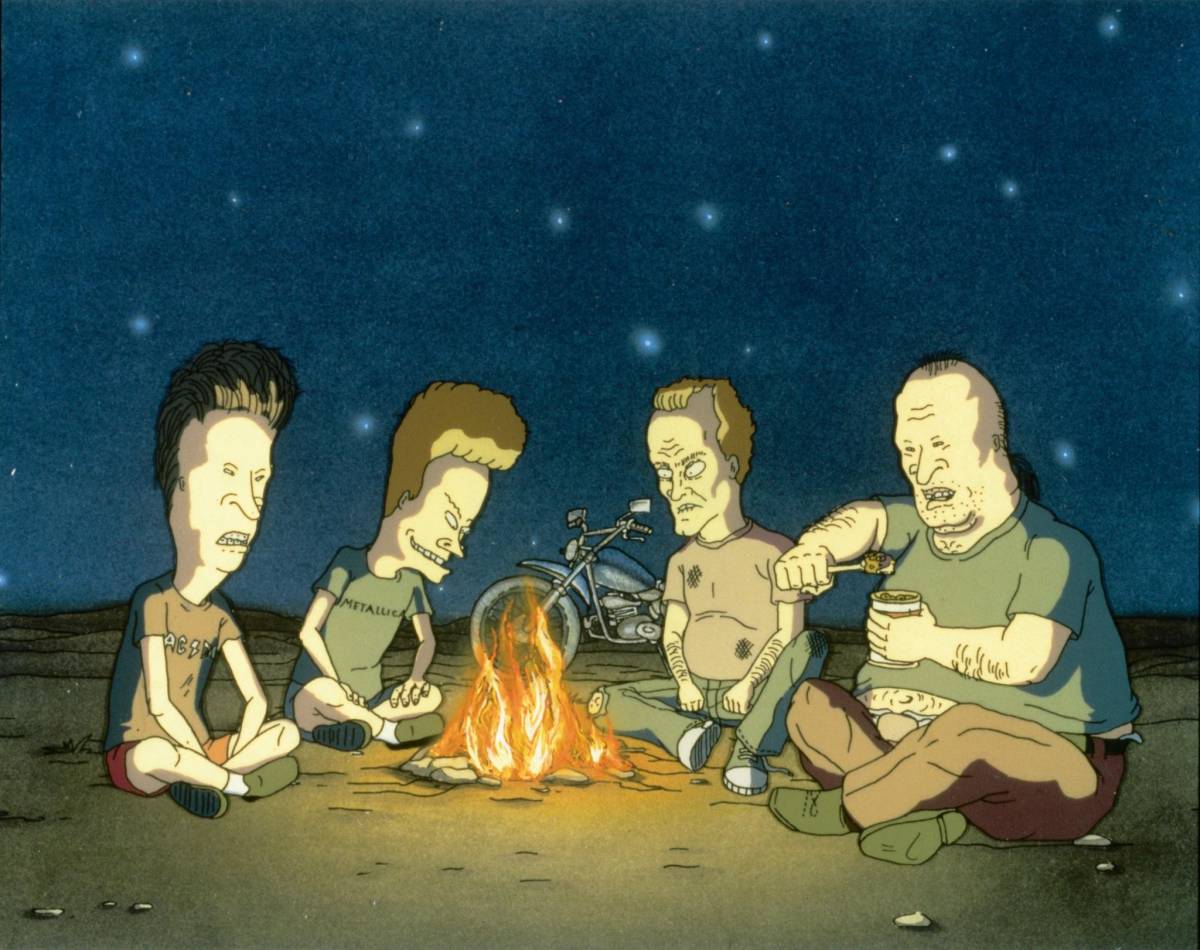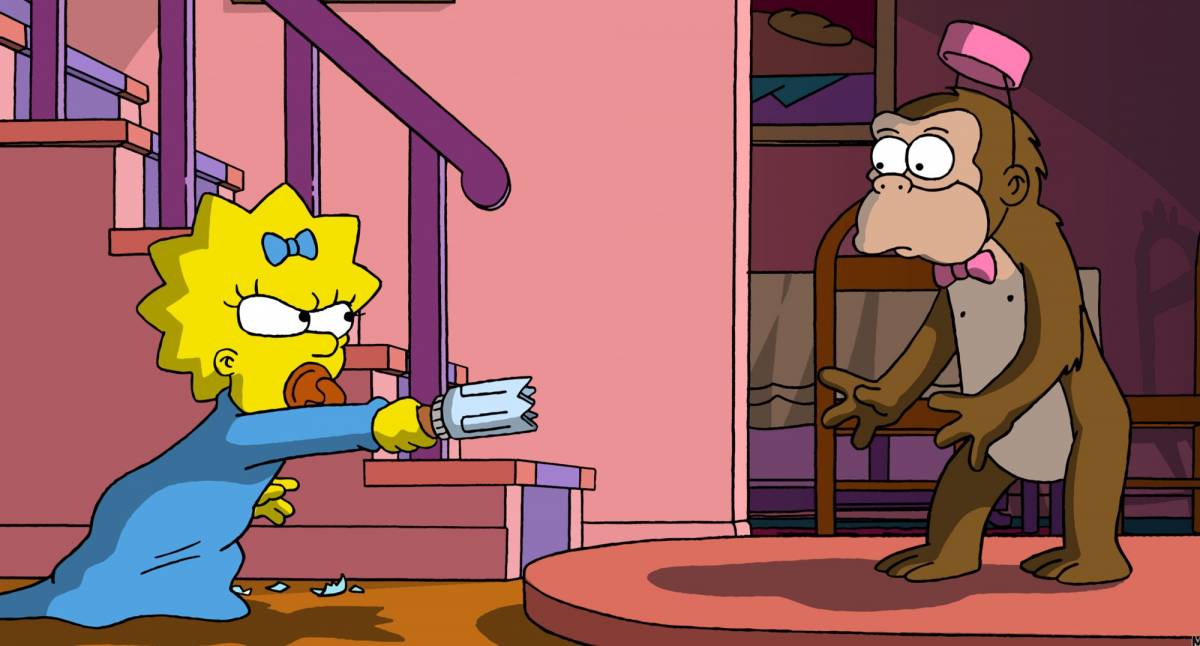I want to start by talking about the summer of 2007. I was 13 and The Simpsons Movie was about to be released.
I was then, and remain, a huge fan of The Simpsons. It had been my favorite show for as long as I could remember. I liked it so much, in fact, that I was watching even the new episodes as they aired. The show has always been a multi-media marketing giant, but this summer, it was big. Real big. The film was to be the ultimate Simpsons event–with toys, a Burger King campaign, targeted advertisements, billboards, online gimmicks, video games, and new interviews with the cast and creators on a near-daily basis – and I loved all of it.
Although the show was the furthest thing from obscure, I still felt some strange sense of vindication that something that I loved so much, in such an intensely personal way, was being promoted as the major media event of the summer.
And then, finally, I saw it. I watched for 87 minutes as glitzier, more expensive-looking versions of those beloved characters danced across the screen, doing more or less exactly what you’d expect them to do in that setting. As I left the theatre, I was both completely satisfied, and more than a little disappointed that life, and The Simpsons, just chugged on after that, unchanged.
It probably seems a little silly to some of you that one could expect a summer movie to change your life, especially a cash-in based on an incredibly popular television show, but that’s the power of advertising. I mention all this because I think this experience encapsulates exactly what a TV show movie could be. Not The Simpsons Movie itself, necessarily, which, after ten years distance, anybody can tell is little more than a sort-of funny, but very flawed mess, but the experience of seeing something that you’ve watched alone in your living room for years become a major, multi-million dollar communal experience. I think now, at a time in which no intellectual property is going un-mined in Hollywood, we’re only going to see more of this type of thing. So why not try and talk about how to do it right?

I’m going to ignore the glut of “nostalgia” films that continue to be churned out in the form of reboots of old TV favorites. So the rule is original cast only. Cameos don’t count. I’m here writing only about official, canonical shifts from the small-screen to the big.
Apart from just opening with a personal memory about TV films, there is a second reason I started off with The Simpsons Movie, and that is the fact that animated shows tend to lend themselves better to big screen. There are a few reasons for this, one of these being that animated movies on the whole are rarer than live-action, which fundamentally make them more unique. Also, by its nature, it is much easier to retain all the elements of what makes the original series great, only with a cinematic facelift.
To give another example, 1996’s Beavis & Butthead Do America effectively scaled up the production by providing creator Mike Judge with a sizable animation budget and a running time that would allow for a more involved story. The conversion was quite seamless. While the show focused on these two simply-drawn characters in a limited setting, the film was a more polished story that moved them out of their living room and into the country. Already, the film is a much bigger, more ambitious project. Pepper in a few references to popular staples of the show (Cornholio, anyone?), and a celebrity voice-cast (Bruce Willis, Demi Moore), and you’ve got yourself a darn good TV adaptation.
As good as the Beavis & Butthead movie is, in terms of carrying animated sitcoms over to the big screen, I would argue that South Park: Bigger, Longer, Uncut is kind of the gold standard. Its landmark MPAA battles aside, the enduring influence of the film dwarfs that of the other major animated TV movies. According to the show’s creators, Matt Stone and Trey Parker, they believed that the film was to be the series’ last stand. After only three seasons, the show was already growing tiresome, due to a lack of growth and improvement and Comedy Central’s overkill marketing campaign. Consequently, the pair sought to make this the ultimate South Park experience. Strangely enough, they succeeded.

They made three major decisions that ultimately made the film great: They chose to make it a hard-R movie, made the movie about itself and made it a musical. The great songs and rampant use of dirty words made it so that the film was something that couldn’t have just been shown on television. The story itself is smart and well-paced enough to justify the extended length, and the plot, which serves as a metaphor for South Park’s own effect on the culture. This makes the piece stand as the series’ ultimate statement, at least to that point. The film included characters, humor, and unique animation style that people had come to expect from the series, but it doesn’t rest on its laurels. Even if the series had never existed, the film still would have been a great comedy.
So, what makes these animated TV films work? In short, better production values, higher stakes, and the retention of all the characters and tropes that make their television equivalents great. This is true of several movies based on kids’ shows as well, which set a lower target, but usually hit the mark, like the Muppets, Rugrats, and Spongebob movies.
I think another thing that works in these movies’ favor is the fact that they’re all comedies. Funny is funny, no matter what the medium, which is why I find it strange there are so few good films based on live-action sketch groups. Naturally, there are going to be some growing pains when changing your format from 2-6 minutes to 90-120 minutes, but how do so many fail so badly, and end up so blatantly unfunny?
I have a bit of a soft spot for Brain Candy, but only because I so love the Kids in the Hall. Tonally, it does feel like a Kids in the Hall project. Nevertheless, as a movie, it’s pretty sloppy. And really, if I’m being honest, it’s more weird than it is funny.
While I also have a great deal of affection for another 90’s sketch series, the subversive and influential Mr. Show, I certainly do not feel the same way about its film equivalent, Run Ronnie Run. I’m sure many of the comedy nerds among you are aware of the somewhat torrid history of Ronnie, but given the amount of talent behind it, it makes it all the more disappointing that it ended up feeling about as empty and as one-note as the multitude of dreadful movies based on Saturday Night Live sketches, which, by the way, I am consciously avoiding. You should too. Yes, that includes Wayne’s World.
The only sketch group which was truly able to bring their brand of humor successfully to the big screen is, you guessed it, Monty Python. I think it’s fair to say that the group pretty much nailed it all three times. How did they do this? With the exception of The Meaning of Life, which is essentially a big budget, high-concept version of their show, Flying Circus, the Monty Python movies follow a single story, and infuse their style of humor into that. The Pythons know their strengths, and they make sure to play to them within the narrative framework they created.

Both in Holy Grail and Life of Brian, the group choose a concept to satirize, one with which most people are familiar with, like medieval fantasy or the Jesus myth, and then graft their comedic sensibilities onto it. These films work because, as sketch writers, they comprise these movies of scenes that serve as independent skits that are funny on their own, but which follow a consistent theme, and move the stories forward. I think the key to the Pythons’ success in film is their ability to take what works about their brand of humor, and put it into a framework that is familiar to an film-going audience.
Unfortunately, I feel this is pretty much were good movie adaptations of TV shows ends. You could make an argument for Veronica Mars, or Twin Peaks: Fire Walk With Me, but it would probably be a poor one. There are, of course, oddities like Jackass, but given its format, it barely qualifies. As I combed through Wikipedia’s list of TV-based films, there was only one that stood out as a pinnacle of television film adaptations.
The film, of course, is Star Trek II: The Wrath of Khan.

Look, this thing isn’t a masterpiece, and that fact is even more clear when watched today, nearly 35 years since its original release date, but it is the perfect re-working of a television property into a film. There are few criticisms that can be leveled against the film that cannot also be made in reference to the series. I suppose there’s the fact that William Shatner is a little fatter here, but if that’s your idea of a criticism, then come on, dude. Grow up.
Wrath of Khan takes a silly little franchise about humans and aliens exploring the galaxy week-to-week, and gives it some weight. Sure, the film is still hokey as all hell, but would it be Star Trek if it wasn’t? All of the major characters are there. The story remains along the same lines as the original series, only the characters have grown, and the stakes(and the budget) are higher.
The stakes remain high until the very end, culminating in the heroic death of a major character. It felt so big, so satisfying, so final. It was the perfect conclusion to the series – if you don’t count the several hundred movies, games, and series that followed it.
I don’t want to suggest that juggling all these balls is an easy thing to do. I’m sure that it’s not, and not every series need to go in that direction. The way we watch television has changed enormously in the past few years, opening up so many new possibilities, that perhaps a feature-length film doesn’t make much sense anymore. But, If there is one area in which Hollywood appears to be steadily improving, it’s brand management. So, who knows? Maybe with the latest trend towards monster budgets and shameless fan-service, we might yet get some satisfying big-screen versions of your favorite shows yet.
Some of the coverage you find on Cultured Vultures contains affiliate links, which provide us with small commissions based on purchases made from visiting our site.

